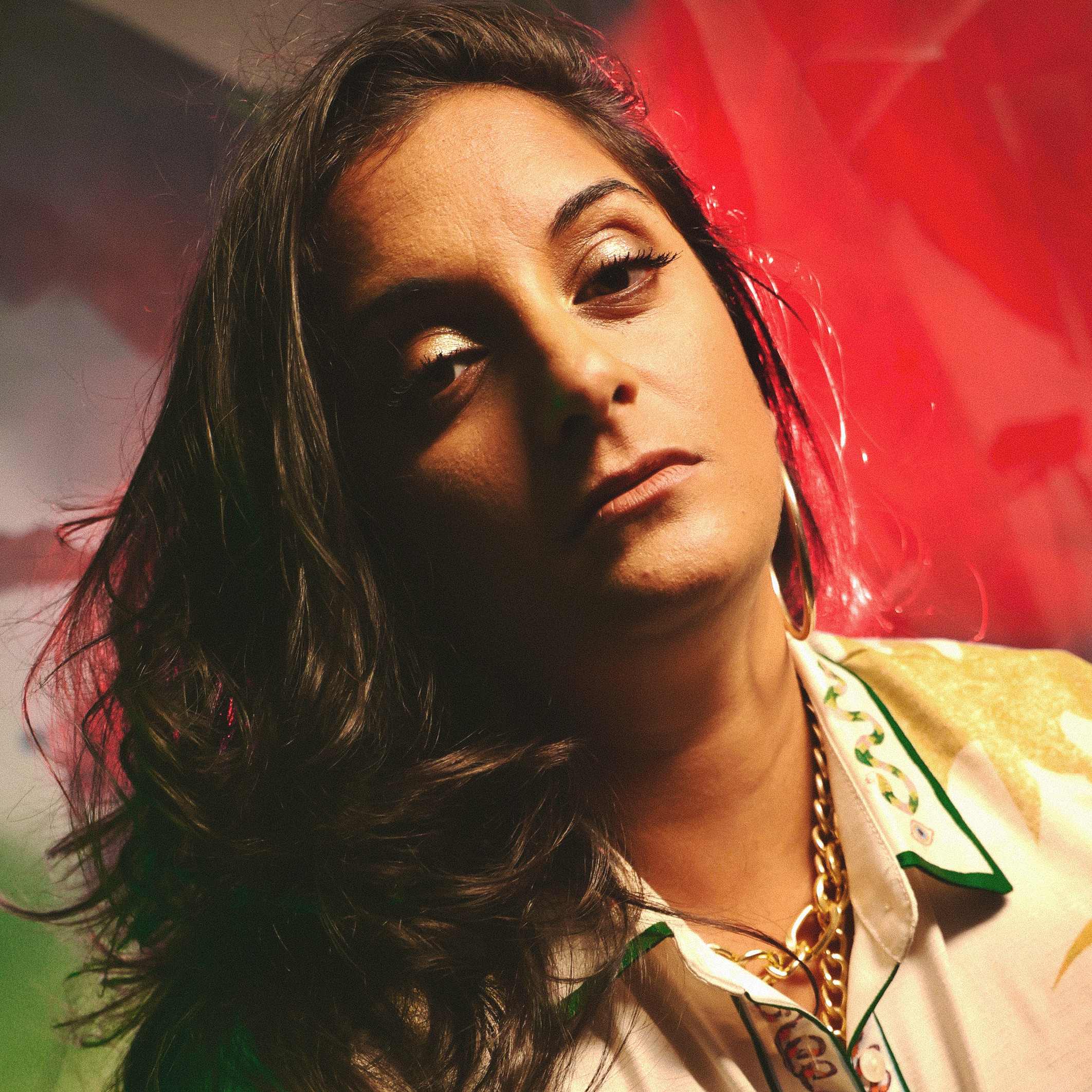Long gone now seems the time when the "Pounia kid" - who gets her name from the founder of the famous Ziskakan collective, from Reunion Island - then a student in Montpellier, left the safety of home to take to the stage as a backup singer.
Since then, Maya has reconnected with her island and made creole and maloya her own. Her parents and their dalons (friends), among them the celestial bum Alain Peters, fought relentlessly, as early as 1979, to keep their music alive. Proudly bearing the kayamb, its most distinctive instrument, Maya takes a hold of her own history, mirroring that of the island itself, and makes it the driving force behind her work. She picks out her second name, "Kamaty" (the name of a marginal, intense and proud woman from the village of Grand Bois, whom her father held in high esteem) as the key to her own path.
Molded on the stage, acclaimed by critics and fans alike, her first album, Santié Papang (2014), is voted "Coup de cœur" of the Académie Charles Cros, allowing Maya to tour the world defending its songs: from India to Australia, by way of Morocco, South Africa, Canada, South Korea and China. Maya Kamaty chooses to leave behind the acoustic dimension of her first album and to dig deeper into her own maps of musical exploration. From this, there emerges Pandiyé, released in 2018.
With her new album "SOVAZ", the singer cuts yet another path for herself in the current musical landscape while refusing to cut any corners, composes syncopated melodies and sings lyrics expressing a deep-rooted wrath, which she expels with an urgency well-known to any street artist. Behind the term "Sovaz" itself lies the idea of a certain rawness, of un-politeness, of brazenness even - an attitude borrowing from the codes of street gangs, of bad boys, of rebellious girls. In this regard, Sovaz can be read as the uncensored expression of a fully self-assured woman.
She now defines her music as "Kreol Urban pop", and teams up with beatmaker Sskyron in a format on the cutting edge of current urban creation; and with tasteful forays into hip hop, trap and atmospheric pop, she manages to build a mightily convincing and unconventionally deep repertoire.
Today, in addition to her musical project, she is artistic director of the Reunionnese record and publishing label Kanyar Deluxe. This young label supports emerging talents like GRiSE, Bioz, Sedjem, Luna Ninja, but also Ziskakan, Anny Grondin (tales and podcast) Sskyron and work in synergy around the promotion of today's creoleness.


